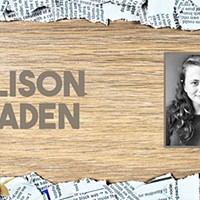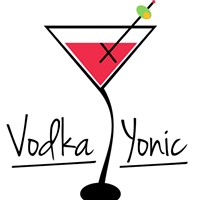Voir dire: the process by which a judge and attorneys ask prospective jurors the same question 10,000 ways, until only 14 people are left alive. I'm guessing it's French for "to die of boredom."
It was looking like I'd be a juror in a rape trial. I'd survived about 8,000 versions of the question when the defense attorney added a twist: He asked potential jurors to raise their hands if they'd ever known anybody who had been sexually assaulted. Nobody besides me put up an arm.
"Are these people kidding?" I thought, my face unable to hide my disgust and disbelief. Of course they knew somebody. We all know somebody. Hell, a lot of us are somebody.
Not that my fellow citizens were lying, necessarily. Maybe no one had ever entrusted their awful secrets with this particular jury pool. But when a very public thing happens to you — or a thing happens and you start talking about it to anyone who will listen — the dam crumbles, and people's secrets start spilling out.
After the thing that happened to me was in my university's newspaper and on the national evening news, people who'd never told their stories before started telling them to me. They offered these stories as gifts of support. And I think they felt that I'd become One of Them, a safe listener who wouldn't judge them.
The stories kept coming, from friends and professors, men and women, young and old. Even the public restroom bore witness; after my drawing class, I'd drift into the arts building's basement bathroom, where women had scrawled their horrific testimonies on the wall: He raped me in my dorm room ... and so on.
The defense attorney addressed me: "How did you know the victim?"
"Which one?" I asked.
"How many people do you know who've been victims of sexual assault?" he said.
"I have no idea," I shrugged. "I've lost count."
I was grateful and humbled to be entrusted with so many secrets. But at first, I went a little crazy. I screamed at men who whistled at me. I tried to kill a guy at a party who told me that women who "cried rape" were "liars." My world had gone dark; it swirled with menace. Everyone I loved had been damaged, it seemed, and everywhere I looked, I thought I saw perpetrators.
I knew too much. And so, when my fellow potential jurors feigned or betrayed their ignorance, it suddenly dawned on me: They know too little. I can help them know more.
So when the defense attorney asked me if having so many friends who've been victims of sexual assault might make me unable to consider the defendant's guilt or innocence without bias, I answered with confidence: "No." In an instant, the idea came: I had less bias than anyone! I had intimate knowledge of this topic. Maybe I could be the person who helped the others understand how the thing comes to pass, the cascading series of decisions that, like loose pebbles, seem harmless enough until the avalanche cuts loose.
And then, he asked this: "Do you believe it's possible for someone to be so intoxicated that they don't remember what happened, but for them still to consent to a sexual encounter?"
A high-pitched string chord skirled in my head. A warning.
I raised my hand hesitantly. I told the attorney that I didn't feel comfortable with his definition of consent. I heard the edge of my voice snag.
He followed up: "Do you think it's possible that someone could at least believe consent had been given?"
"I ... I suppose so," I stammered. But I didn't suppose so. Not at all.
My hands were shaking now, and my throat was drawing shut in an old familiar way. I realized that in a few minutes, I would be weeping, or screaming, or attacking the defense attorney. I couldn't understand what people in the courtroom were saying anymore.
I suddenly grasped how ridiculous it was to think I could be some kind of omniscient rape-translator for this jury. A shrill voice was already ululating in my head, sticking up for all the people whose stories I know, friends and near-stranger-confidantes who "confessed" to making some small choice, and who got punished for it beyond all measure of what anyone could ever possibly "deserve."
When you are One of Them, your ears attune immediately to the subtle notes of accusation embedded in every question or comment. Why did you forget to lock the door? Why did you order another shot? Why did you exist as a human female?
Layered beneath the blame, ultimately, is an instinct for self-protection. The asker is, in essence, suggesting that he/she would never be so stupid, trusting, slutty, drunk, reckless or — and it really comes down to this — vulnerable as the victim was. Because if you don't ask the question, even inside your head, you have to acknowledge: It could have been me. And for a lot of people, that idea is impossible to accept.
I realized this trial was going to be a full-frontal assault of blame-laden questions. And as my anger and defensiveness swelled, I stopped being the skeptic I needed to be. I stopped being a juror.
I'd clearly failed to grasp the concept of bias. I looked at the young woman and man — accuser and defendant — and I saw their fear. They deserved a better juror than I could be.
I needed out of the jury box. Right then. I raised a trembling hand and told the attorney and the judge that I'd been wrong: I couldn't be impartial after all.
The judge looked at me kindly. "You're saying that now that you've heard more, you think you would not be able to consider the verdict fairly?" she said.
"I would very much want to," I told her. "But I'm afraid I might not be able to."
She smiled and nodded, and excused me from the courtroom.
Speaking of...
-

Local Researcher Goes Deep into Women's Sexuality
Jun 13, 2018 -

Rape is not a plot device
Jun 11, 2015 -
First Drip (3/23/15): Immigration task force presents findings, Ted Cruz, more
Mar 23, 2015 - More »
Latest in Vodka Yonic
More by Kim Green
-

Back in the USSR
May 7, 2015 -

An open letter to the good guys
Feb 19, 2015 -

Mansplainers Anonymous
Feb 11, 2015 - More »
Calendar
-

Haw River Wine Tasting @ Carolina Beer Temple.
- Wed., April 24, 5-7 p.m.
-

Haw River Wine Tasting @ Carolina Beer Temple.
-

Mayo Clinic 8th Annual SKIN: Practical Dermatology for the Generalist @ The Ballantyne, a Luxury Collection Hotel, Charlotte
-

TRIVIA THURSDAYS!!! @ Elizabeth Parlour Room
-
NHRA Four-Wide Nationals - Friday @ Charlotte Motor Speedway
-
A Beginners Guide To Fishing 1
-
Sexercise with yoga ball dildos 1
The sexercise machine you would watch an hour-long infomercial on.
-
Veterans Day deals
Veterans Day: Creative Loafing says "thank you." Other companies give you discounts.










